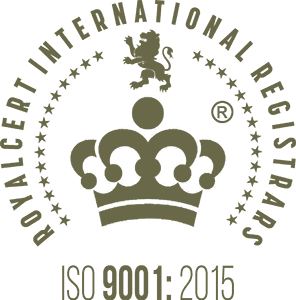The Middle East’s maintenance, repair and overhaul, (MRO) landscape has witnessed substantial growth and the formation of strategic partnerships in 2023 all aimed at elevating the industry’s capabilities to match rapid anticipated expansion of the region’s aircraft fleet.
The region is expected to see 3,025 new commercial aircraft take flight by 2042 with concomitant increase of US$335b in demand for aftermarket services or just over 6% CAGR into 2033. Governments and businesses are racing to build both the capacity and capability needed to serve the ambitious growth plans of some of the region’s largest – and soon to be largest – carriers and build out the roadmap to a sustainable, integrated aviation ecosystem designed to serve one of the fastest growing regions in the world.
With an eye on MRO self-sufficiency, Saudi Arabia, Jordan and the UAE are pre-emptively investing enormous quantities of funds in developing their own MRO industries.
Expanding Local Capacity
Both UAE and Saudi Arabia are investing in capacity expansion.
Saudi Arabia
In the Kingdom, the Public Investment Fund (PIF) is investing in Saudia Technic, previously known as Saudia Aerospace Engineering Industries, a subsidiary of Saudia Group. Established in the 1970s, the company specializes in aviation MRO including line, base, components and engines.
The investment announced in December 2023 – with a stated aim of transforming Saudia Technic into a national MRO champion and preferred MRO service provider for both domestic and international airlines operating out of the Kingdom and the greater region – will facilitate infrastructure development, operational efficiency enhancements and the establishment of a dedicated MRO village with greater hangar capacity and component shops to service the expected surge in demand for MRO services.
The 10.7 million sq. ft. will be located in Jeddah and offer a comprehensive range of services including centres of excellence for engine maintenance (including an engine test cell to service both narrow-body and widebody engines) as well as an advanced jet propulsion centre.
The investment is expected to drive innovation, position Saudia Technic as an industry leader in the near future and ‘marks a significant milestone in unlocking capabilities, localising expertise, and establishing a world-leading aviation sector in Saudi Arabia’.
United Arab Emirates
A month earlier, in November 2023, Emirates announced that plans to construct a maintenance facility at Dubai World Central. Sprawling over one million square metres, the facility will consist of nine maintenance hangars and one paint hangar. Completion is expected in 2027.
The Mohammed Bin Rashid Aerospace Hub, based in Dubai South is planning to build a new wide-body hangar in partnership with Tim Inteveatment.
Finally, Etihad Engineering is boosting its training capabilities by building a new technical training facility near Abu Dhabi International Airport. At 17,000-square-foot, this facility will be able to accommodate 18,000 trainees with the capacity to offer 1,000 courses.
Boosting Regional Capability
Lufthansa Technik Middle East signed a three-year base maintenance contract with the UAE’s Emirates Airlines continuing work on its A380 fleet including heavy maintenance work for 10 aircraft.
It has also signed a ten-year Total Component Support deal with Saudia Technic to support Saudia’s fleet of 53 A320 and 31 A330 aircraft.
Joramco, a Jordanian MRO, will continue to provide heavy maintenance checks for Gulf Air’s entire fleet until 2028 and will be conducted at its Queen Alia’s International Airport facility. In partnership with Etihad Engineering, it will provide maintenance services for Emirates’ Boeing 777 fleet over the next two years and has signed an agreement with Spirit AeroSystems to become an authorised service centre and provide repair services for V2500, CFM56-5B and CFM56-7B engines.
Archer Aviation, an American firm, is establishing an engineering training centre in Abu Dhabi for electric vertical-take-off-and-landing (eVTOL) operations. The aim is to work with local service providers such as Falcon Aviation and GAL-Ammroc to develop and support advanced air mobility services in the UAE.
Sanad, a global provider of aerospace engineering and leasing solutions based in Abu Dhabi, will help develop Egypt’s MRO capabilities for engines and engine testing in partnership with EGYPTAIR Maintenance and Engineering operating out of both Cairo and Abu Dhabi.
Variously, in partnership with Thales, Sanad will provide maintenance, installation, testing, and commissioning services for air navigation, air traffic management, and airport safety and security systems; and work with GE Aerospace and Safran Aircraft Engines to provide maintenance service for CFM International engines thereby further developing its local capabilities for narrow-body aircraft.
Also in 2023, Etihad Engineering acquired Nacelle, an MRO business previously owned by Collins Aerospace and signed an agreement with Acme to serve as an authorised service provider for Acme batteries in the region.
Why the sudden interest in MRO self-sufficiency amongst Middle East players?
In 2022, Oliver Wyman, a consulting firm, said that recent geopolitical events have only served to highlight the need for “airlines and aerospace manufacturers to maintain a decent amount of capacity that cannot be taken out of the mix by trade wars or sudden travel restrictions.” Quite.
In 2023, a definite and significant push towards investments in national and regional MRO capacity is no longer a discretionary consideration. It’s an urgent need.
With demand for MRO services at fever pitch, ‘a price war on lead times’ is in no one’s interest but very much a reality. As a burgeoning though exciting market, the Middle East is not guaranteed to emerge victorious.
For a discussion on the factors underlying this frenzy, read our article on Supply Chain Woes.
Photo credit: Luka Slapnicar on Unsplash



